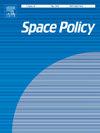Identifying risks for success in space tourism: A proactive approach for Türkiye
IF 2
4区 社会学
Q2 INTERNATIONAL RELATIONS
引用次数: 0
Abstract
Effective planning is crucial for the success of any tourism endeavor, including space tourism. To ensure correct and proactive planning, it is essential to identify and address potential threats and weaknesses in advance. This research aims to reveal possible threats to Turkiye's success in the field of space tourism, employing a qualitative research approach with expert interviews. Building on this context, the research adopts a deductive approach, focusing on a qualitative “situation analysis” design, with Türkiye as the universe and sample. Expert opinions from professionals with technical knowledge of space commercialization and tourism were collected using a snowball sampling technique. Through in-depth interviews, the perceived risks were identified and analyzed. The data obtained were coded and categorized, resulting in main themes related to various elements of the external environment, including political, international, legal, economic, social-cultural, demographic, and technological risks, as well as ethical considerations.The findings highlight that space tourism activities, especially suborbital and extraorbital ventures, carry significant risks. To ensure Türkiye's success in space tourism, the study emphasizes the importance of conducting a comprehensive analysis of the external environment, considering the interrelatedness of the identified risk factors.
求助全文
约1分钟内获得全文
求助全文
来源期刊

Space Policy
Multiple-
CiteScore
3.40
自引率
36.40%
发文量
40
期刊介绍:
Space Policy is an international, interdisciplinary journal which draws on the fields of international relations, economics, history, aerospace studies, security studies, development studies, political science and ethics to provide discussion and analysis of space activities in their political, economic, industrial, legal, cultural and social contexts. Alongside full-length papers, which are subject to a double-blind peer review system, the journal publishes opinion pieces, case studies and short reports and, in so doing, it aims to provide a forum for the exchange of ideas and opinions and a means by which authors can alert policy makers and international organizations to their views. Space Policy is also a journal of record, reproducing, in whole or part, official documents such as treaties, space agency plans or government reports relevant to the space community. Views expressed in the journal are not necessarily those of the editors or members of the editorial board.
 求助内容:
求助内容: 应助结果提醒方式:
应助结果提醒方式:


